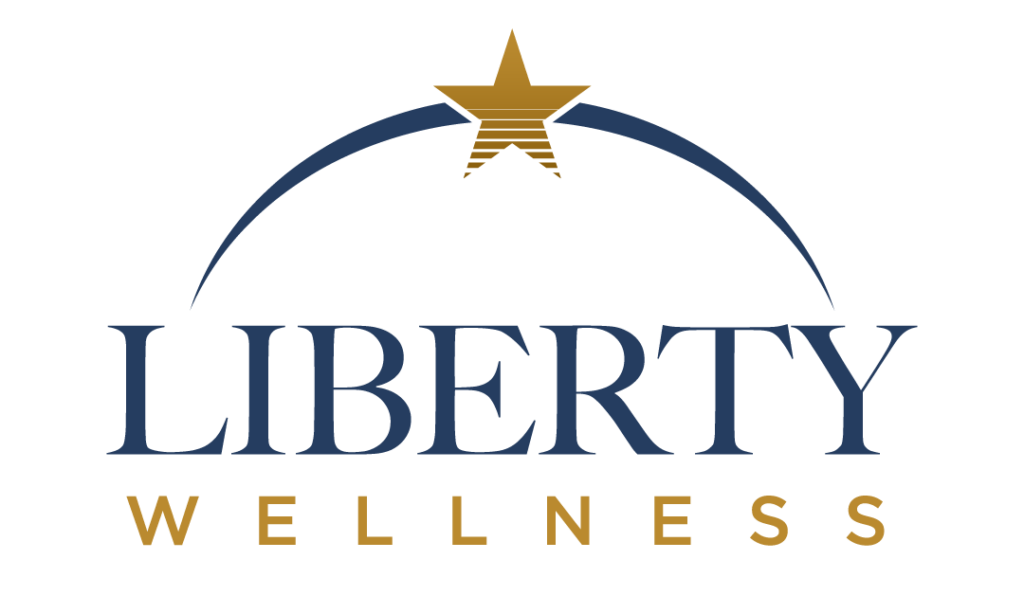PTSD Treatment
The Warning Signs Of PTSD And What You Can Do To Help
PTSD can be a debilitating condition, but with the help of a PTSD treatment center in New Jersey, you can get your life back on track. If you are worried that you or a loved one may be suffering from PTSD (post traumatic stress disorder ), it is crucial to be aware of the signs and causes of the disorder.
For anyone suffering from substance abuse or dual diagnosis conditions, Liberty Wellness is a drug and alcohol rehab center in New Jersey that can help. Contact us today to learn more about treatment options near you.


Our Co-Occurring Disorder Program
Liberty Wellness of New Jersey Makes Your Journey To Recovery As Stress-Free As Possible.
What is PTSD?
Post-Traumatic Stress Disorder (PTSD) is a troubling mental health condition that can manifest after one has endured or simply observed a traumatic event.
What Causes PTSD?
While the precise etiology of Post-Traumatic Stress Disorder (PTSD) is highly complex, various types of traumas may contribute to its development, including:
- Being involved in combat or being harmed
- Involvement in accidents like car crashes, plane crashes, and train wrecks
- Watching the unexpected and sudden death of someone important to you due to homicide or suicide
- Exposure to a natural disaster, like a hurricane, tornado, flood, or fire
- Enduring violent intimate assaults such as mugging, rape, torture, or kidnapping
- Experience abuse or neglect while a child, including physical, sexual, and emotional related events
PTSD Statistics
Recent studies suggest that over 9 million Americans aged 18 and above suffer from PTSD annually, which is approximately 3.6% of the adult population in the US.
Distressingly, women are two times more likely to experience Post-Traumatic Stress Disorder than men; 10% of females suffer from this mental health issue in comparison to men’s 5%.
What Are the Signs of PTSD?
Although Post-Traumatic Stress Disorder manifests itself differently in each individual, there are a few common symptoms to be on the lookout for, including:
- Involuntarily recreating the traumatic event in your mind
- Experiencing dreams where the traumatic event is repeated over and over again
- Haunting thoughts of the traumatic event throughout your day
- Development of avoidance behaviors like discomfort or feeling tense around people, places, and things that lead to you recalling the event
- Accelerated breathing
- Vertigo
- Headaches
- Sweating
- Chest pain
- Self-destructive attitude
- Hypervigilance
- Hostility
- Insomnia
Can PTSD Cause Addiction?
It is estimated that an astonishing one-third of individuals with PTSD concurrently grapple with addiction. This indicates the two are inextricably linked and frequently appear together.
To cope with their condition, individuals who have experienced trauma may turn to substances such as drugs or alcohol; this includes using them for the following reasons:
- Cope with destructive impulses
- Regulate feelings of anxiety and depression
- Liberate themselves from distressing flashbacks of trauma
- Numb feelings of physical or mental pain
- Find respite from sleep problems
If you are living with the struggles of Post-Traumatic Stress Disorder, make sure to seek out help from a certified PTSD treatment facility.
Additionally, if your issues extend beyond this and include addiction, specialized programs are available that simultaneously treat both conditions.
By seeking the right PTSD treatment, you can begin to mend your past wounds and construct a prosperous tomorrow!
How is PTSD Diagnosed?
It is essential to visit a post traumatic stress disorder recovery center near you to receive an official PTSD diagnosis. During the assessment, a mental health professional will evaluate your medical history and symptoms to determine if post traumatic stress disorder might contribute to your struggles. Usually, Post-Traumatic Stress Disorder is diagnosed by completing a screening tool called the PTSD Checklist for Diagnostic and Statistical Manual of Mental Disorders (DSM-5).
The PTSD Checklist is a questionnaire that inquires about the extent and frequency of PTSD symptoms that have been experienced. Once you receive an official diagnosis, your healthcare provider will discuss available mental health treatment programs and other health services.
What are PTSD Treatment Options in New Jersey?
At a New Jersey PTSD treatment center, several therapeutic methods are available to help you recover from post traumatic stress disorder and co-occurring mental health disorders.
These include:
In a medical detox setting, trained professionals will monitor individuals undergoing PTSD and substance abuse rehab 24/7 to ensure their safety and comfort throughout the withdrawal process.
During a residential PTSD treatment program, individuals will receive around-the-clock care in a supportive and structured environment that is conducive to stability and recovery.
Similarly, intensive outpatient rehab programs offer care during the day, but patients are permitted to return home or to a sober living environment each evening.
Outpatient PTSD rehab options are highly flexible and encourage clients to maintain employment while participating in weekly therapy sessions.
CBT is a form of behavioral therapy that helps people identify and address harmful thoughts, behaviors, and emotions. This type of PTSD treatment allows you to understand the connections between your feelings, behavior, and PTSD symptoms so that you can actively work towards conquering them.
Often, PTSD recovery programs in New Jersey involve Dialectical Behavior Therapy, which is a form of cognitive-behavioral therapy that focuses on balancing and regulating emotions.
Another psychotherapy technique, Eye Movement Desensitization and Reprocessing (EMDR), encourages individuals to explore their traumatic memories. During the session, you’ll be asked to move your eyes in specific patterns, which aim to allow for the reintegration of traumatic experiences into a healthy memory network.
If PTSD occurs alongside addiction or another mental health condition (such as depression or anxiety), dual diagnosis PTSD rehab in New Jersey programs are available to treat PTSD and co-occurring disorders simultaneously. This approach is tailored to fit each person’s individual needs and focuses on expertly addressing all of their concerns in one setting.
PTSD treatment in New Jersey often encourages individuals to find aftercare support. After graduation from PTSD rehab in New Jersey, many PTSD centers will provide resources and referrals for additional care, such as mental health counseling, continued therapy, or peer support group programs in the community.
Liberty Wellness is a Dual Diagnosis PTSD Treatment Center in New Jersey
The Liberty Wellness post traumatic stress disorder treatment center in New Jersey provides dual diagnosis care to address mental health disorders and the symptoms of PTSD.
They provide personalized and specialized PTSD treatment, including medical detox, intensive outpatient care, dual diagnosis treatment options, and aftercare support services.
If you or a loved one is struggling with PTSD in New Jersey, contact Liberty Wellness post traumatic stress disorder Treatment Center today for more information about available PTSD treatment options.
By understanding post traumatic stress disorder warning signs, seeking out PTSD treatment centers in New Jersey, and learning about available PTSD treatment options, you can take the first step towards a PTSD-free life!
We Accept Multiple Types of Insurance
Get help with payment for your Addiction rehab treatment. We accept multiple types of insurance and can help you verify if you will be accepted.








Reach out to us with any questions or to get started
Our Location:

-
20 East Taunton Road Suite 103
Berlin NJ 08009 - 866-937-3158

